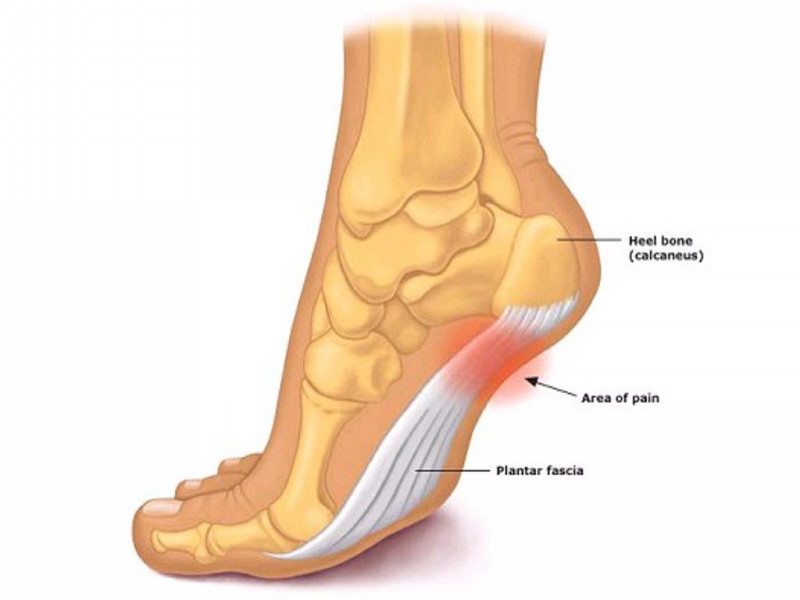What is Plantar Fasciitis?
Probably the most common musculoskeletal injury that a podiatrist will treat is plantar fasciitis. I’m sure many of you have heard of it, have had it or know somebody who has struggled with it! Apart from being a mouthful to say “Plantar fasciitis” refers to inflammation of the plantar fascia, which is a tendinous sheath that runs from the heel to the ball of the foot.
Patients with plantar fasciitis often report extreme pain in the first few steps after getting out of bed or standing after being seated for extended period of time, pain in the heel and/or arch and trouble walking/running long distances.
The condition is most commonly an overuse injury where repetitive stress and strain is applied to the plantar fascia. Eventually and similarly to a rubber band being stretched over and over again, the plantar fascia starts to develop micro-tears leading to pain and inflammation. This can occur in a variety of ways; for example, it could occur in:
- a runner who has increased training volume,
- a person who wears only thongs all summer, or
- a retail worker who stands on hard floors for extended periods of time.
There are many risk factors for plantar fasciitis including poor biomechanics, un-supportive footwear, female gender due to ligament laxity, high BMI (maybe somebody put on a few kilos over Christmas!), tight calves and sudden sharp increase in activity, to name a few.
Plantar fasciitis can take some time to recover from, which is complicated by the fact we all must use our feet every day. Similarly to having a fractured foot, weight bearing on a damaged structure delays healing. The good news is there are many treatments available for plantar fasciitis, and a good podiatrist combined with a compliant patient should lead to treatment success! Conservative treatments involve icing, massage, stretching regimes, rest and footwear modification while more extensive therapies can include orthotic therapy, injection therapy, shockwave therapy and more. A combination of treatments is the best approach with the goals of reducing inflammation, offloading and stimulation of healing.
From a retail perspective, arch support in footwear is crucial in somebody with plantar fasciitis, as the arch support prevents the excessive strain on the fascia. Just like any other foot pain, a visit to a podiatrist is recommended! As discussed in previous posts, pain is an indicator something is wrong and as such should be treated accordingly.

Podiatrist Dr. Darcy Dore works from both our Collins St (Melbourne CBD) and Chadstone Clinics. You can book an appointment to see him on 1300 113 116 or request an appointment online.


